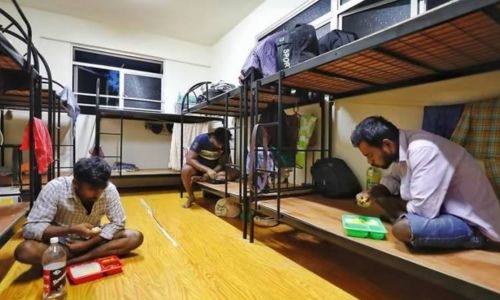The Government of Bahrain is taking steps to regulate and monitor the leasing of shared accommodation for expat workers to ensure compliance with health and safety standards. This move is aimed at protecting national heritage while also prioritizing the well-being of expatriates through increased inspections and stricter regulations in shared housing. In response to MPs, the Government stated its determination to ensure the safety and well-being of expat workers by implementing these measures.
To support this initiative, teams have been established in each governorate to inspect properties where expat workers reside. These teams, chaired by the relevant governor, include representatives from the Ministry of Health, the Ministry of Labour, the Civil Defence Administration, and the Labour Market Regulatory Authority (LMRA). These actions are in line with Article 34 of the Constitution, which focuses on keeping society safe. The government has also introduced new rules in 2015 to combat human trafficking, with penalties for offenders and protections for victims.
In addition to these regulations, the Labour Law enacted by Royal Decree No. 27 of 2014 prohibits the employment of non-Bahraini workers without a valid work permit. Employers are required to provide appropriate accommodation that meets health and safety standards, including gender separation and decent living conditions. The recent Cabinet Decision No. 1 of 2023 aims to further regulate the housing of expat workers in the Capital Governorate to ensure compliance with health and environmental requirements.
The government emphasizes its commitment to international obligations regarding the care of victims of human trafficking, providing essential support and assistance for their return to their home countries. It also stresses the importance of community awareness and cooperation among all relevant groups in addressing this issue. By implementing these regulations and measures, Bahrain aims to protect both its national heritage and the well-being of expatriates living in shared accommodation.
In conclusion, the Government of Bahrain is prioritizing the safety and well-being of expat workers by regulating and monitoring shared accommodation to ensure compliance with health and safety standards. By establishing inspection teams in each governorate and introducing new regulations, the government is taking steps to combat human trafficking and protect the rights of expatriates. Through these efforts, Bahrain aims to fulfill its international obligations and provide a safe and secure environment for all residents, while also preserving its national heritage.


























